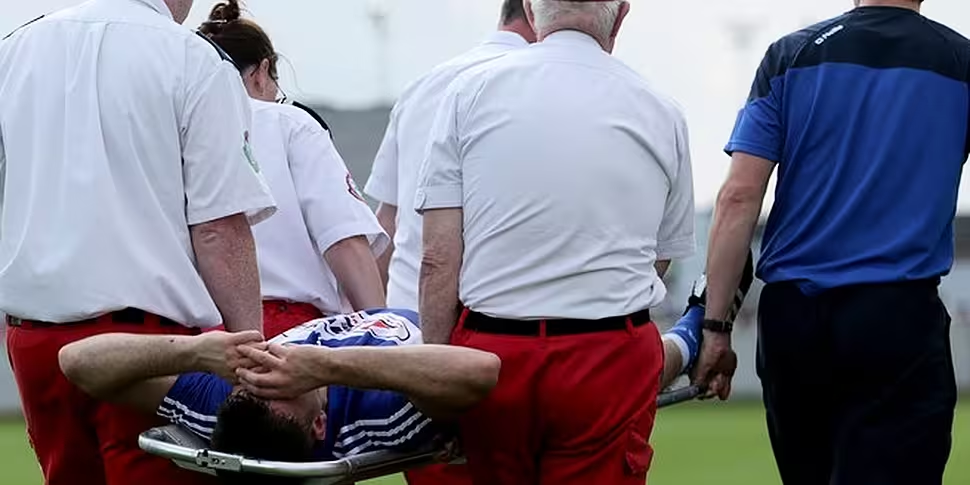Receiving treatment from too many medics throughout their career is leaving GAA players prone to irreparable damage to their hips, according to a leading consultant.
Hip injuries have become the scourge of GAA players, forcing many of them into premature retirement.
Over-training is an established cause for this trend, with the average player expected to satisfy masters at club, college and inter-county level, leaving them with little room to sandwich in recovery between all the commitments.
Former Irish rugby team doctor Eanna Falvey spoke about this at length on Off The Ball earlier in the year, but now data released by the GAA shows that there has been a 392% increase in hip surgeries in the GAA between 2007 and 2014.
Patrick Carton, a consultant at Whitfield Clinic in Waterford, believes that there may be another reason for these unsettling figures.
He argues that as a player progresses through the grades, they are being treated by different medical people, which leads to injuries going unrecorded. This in turn leaves players vulnerable to allowing underlying symptoms advance to a level that can no longer be treated.
Speaking in the Sunday Independent, he said:
"My main concern is the number of young sportsmen who are coming through our clinic with evidence of irreversible damage to their hip joints - early arthritis - that in many cases is too advanced to treat."
"Every single week, I see players in their 20s and 30s, who are hoping to have hip- repair surgery and, unfortunately, their hip has deteriorated to such an extent that we cannot repair it."
"The story is the same every time - they've had regular rest periods, a number of different physiotherapy programmes, injections of steroids, but eventually after a number of years, the symptoms get to the stage where the players cannot train or play without pain and are advised to see me, and by this time, it is much too late.
He went on to proffer a solution to this problem, which he says already exists in other sports:
"I think one thing that is missing in GAA that you see in other sports is the ability for the physiotherapist or the doctor, who looks after the team, to have logs of their injuries, or times they train and play, to see the workload.
"Nobody knows from one week to the next, or even one year to the next, what injuries a player has had and the physiotherapists and physical therapists change every year, so there is no continuity or ability to see if someone is getting progressively worse."









